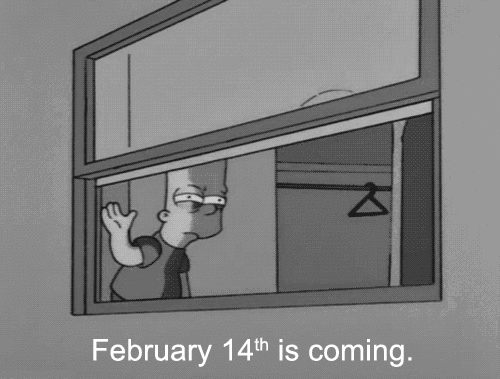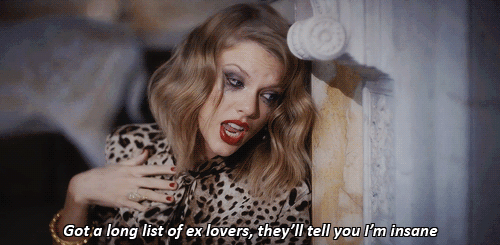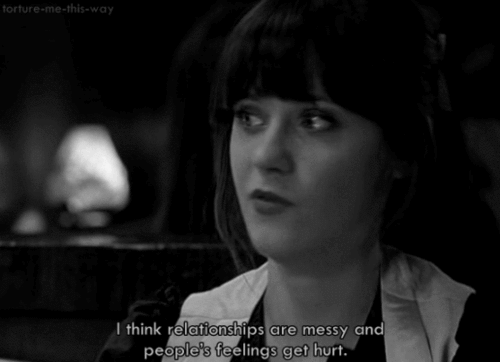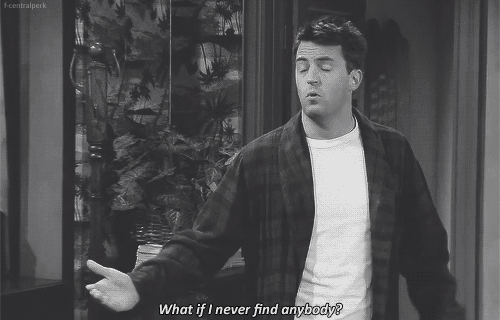
It's almost Valentines Day (bleugh) so I think now is a nice time to reflect on Relationships and Mental Health. Mental Health is a difficult subject when it comes to relationships. It's also not often spoken about.
Before I begin to analyse why mental ill-health in relationships is difficult for both parties involved I want to clear a few things up. I am not a relationship expert. This is not an accurate commentary of your very happy relationship. Or a satire of failed past romantic liaisons. I've wanted to write on this topic for the past two months, and I finally have my thoughts gathered together enough to give it a go. So drop your expectations and hear me out.
A friend of mine recently said that for his next relationship he was looking for a girlfriend who was emotionally stable.
Fair enough. I mean you cant argue against that, can you?
But how do we classify who is emotionally stable or isn't? Are we doing background checks? Looking at medical records?
| Medical Dictionary |
So is it fair to expect that of anybody?
Can we expect someone to be by our side while we cry for an hour non-stop without provocation?
To have to constantly reassure us? To have to try and pick us up when our self esteem is on the floor?
We expect it off our friends. And if someone stops talking to you because of your mental health we say 'They aren't worth it', 'They weren't your real friends'.
And we expect it from our families. I don't know what I would do if my family didn't accept me for who I am unconditionally.
We feel guilty about expecting such unconditional love from family and friends, but we wouldn't survive without it.
And so we are free to judge those people who don't want to deal with mental health in these circumstances.
But when it comes to romantic (bleugh) relationships, we don't hold the same penchant for distaste.
It's acceptable for my friend to want to date someone who is 'stable'. I'm not even going to attempt to argue that it isn't, because I fully agree with him. But the way we view mental health in relationships is all wrong...
Look at it this way:
We all know someone who has a 'crazy ex' story. The stalker. The possessive one. The alcoholic. The crier. The split personality. The jealous one. The emotional blackmailer.
But how does this definition of 'crazy' compare with our unease at using the word 'crazy' in relation to mental illness?
 |
| Thought Catalog |
It's also something that has become synonymous with girls. As this example from Pitchfork shows, it's easy for a woman to be labelled 'crazy':
 |
| Pitchfork |

In these cases the word 'crazy' isn't used in relation to a diagnosed mental illness; it's about those who act irrationally, inappropriately, abusively.
We don't blame a person if they broke up with someone who later becomes a 'crazy ex' story. But would we act differently if their ex had Bipolar Disorder? Schizophrenia? Severe Depression? What if a mental illness was the reason why they broke up with an ex?
Are there some behaviours we see as unacceptable and others as acceptable because of a mental illness?
Well I believe we do. Based on what we consider to be a legitimate mental health problem and what is not, we decide who is a 'crazy ex' and who we actually have sympathy for. If you believe someone is genuinely experiencing a mental health problem you don't jump in with the word 'crazy'. At least most of the people I know don't and wouldn't. When Tesco stopped stocking straight-jackets at Halloween I think we as a society finally realised the difference between real mental illness and our traditional misconceptions of mental health.
But when it comes to people who don't have a medical reason to act irrationally, the word 'crazy' comes back into use.
Well I believe we do. Based on what we consider to be a legitimate mental health problem and what is not, we decide who is a 'crazy ex' and who we actually have sympathy for. If you believe someone is genuinely experiencing a mental health problem you don't jump in with the word 'crazy'. At least most of the people I know don't and wouldn't. When Tesco stopped stocking straight-jackets at Halloween I think we as a society finally realised the difference between real mental illness and our traditional misconceptions of mental health.
But when it comes to people who don't have a medical reason to act irrationally, the word 'crazy' comes back into use.
So what about when there is a diagnosed mental illness at play?
A 2013 study from Mind (mental health charity) and Relate in the UK showed that 77% of people with a mental health problem talk to their partners about their mental health. Only 5% of these people said their partners broke up with them when they heard about their condition. (Although in my opinion 5% is still quite high...)
A 2013 study from Mind (mental health charity) and Relate in the UK showed that 77% of people with a mental health problem talk to their partners about their mental health. Only 5% of these people said their partners broke up with them when they heard about their condition. (Although in my opinion 5% is still quite high...)
Another key finding from the survey showed that 3 in 5 (60%) people with mental health problems thought being in a relationship has had a ‘positive impact’ on their mental health.
However, it's not all good news. People with mental health problems and their partners revealed that amongst other pressures (e.g financial and employment issues) the mental illness put the most strain on relationships.
So mental illness is discussed and accepted in relationships. But this doesn't stop it being a problem.
You see, mental illness and relationships don't work together on paper. Don't jump to conclusions here. I know people who are in happy, healthy relationships; people with mental health problems. But for me, as a person with a mental illness, there is no situation where my depression benefits a relationship.
If your social anxiety is holding you back from leaving the house, or your depression leaves you in bed for days on end, how are you ever meant to meet somebody new?
Is any relationship healthy when you're living on edge that one more mood swing will finally push them away for good? There's the lack of trust. The inability to see yourself as worthy of love. The guilt that your mental illness is now holding them back as well as you.
There's the lack of trust. The inability to see yourself as worthy of love. The guilt that your mental illness is now holding them back as well as you.There's the 'not un-called for' fear that your irrational actions will drive your other half away. And then you'll just become another 'crazy ex' story....
Even with a medical diagnosis to back your behaviour up, having another person willing to be in a relationship with you still feels like a massive risk of both trust and your established comfort zone.
And if the risk doesn't pay off, are you just opening yourself up for a return into a depressive episode?
So yes, due to the 'problem' of mental health, one of my most consuming worries when I'm down is over the romantic relationships by which one defines themselves: That I will die alone.
 |
| f-centralperk |
I also have a rather unhealthy obsession with weddings; the plans of my own potential future wedding are laid out on colour coordinated Pinterest Boards...
So I am not anti-love or anti-relationships.
I'm aware that I am asking more questions in this post than I am answering. (Sonja described it as like 'an episode of Sex and the City'...) But the thing is, I don't have all the answers. If you do, great! Please feel free to share them below.
Just remember, it is important to recognise
 |
| The Free Dictionary |
and 2) that relationships are risks. Huge risks. Irregardless of your mental health.
And for that reason, they're really scary.


No comments:
Post a Comment